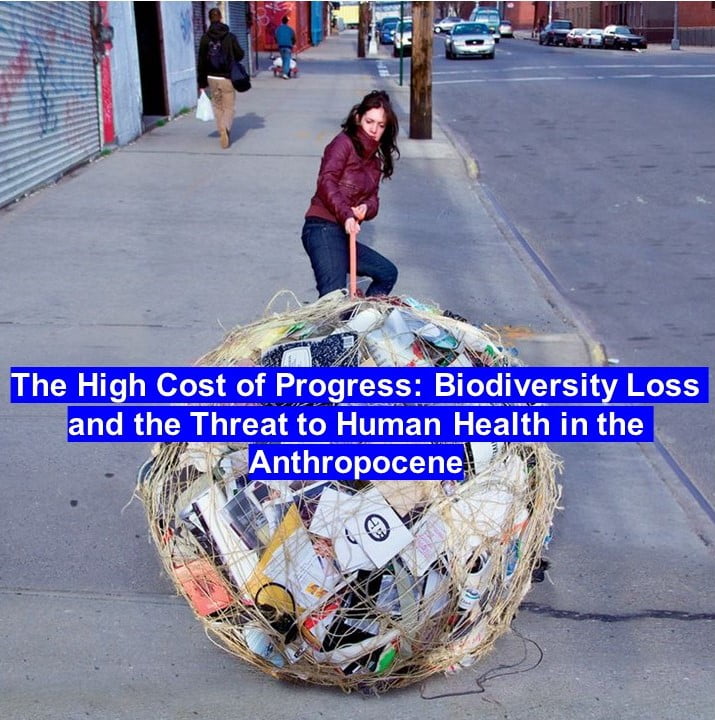
Nature cannot be thought of as composed of inert, dead matter. Instead, all life forms share the element of qi or material force- this shared psycho-physical entity becomes the basis for establishing reciprocity between the human and nonhuman worlds.- Confusious.
In recent decades, human activity has left such a profound mark on the environment that it’s ushered in a new geological epoch: the Anthropocene. Popularized by Nobel laureate Paul Crutzen, the Anthropocene signifies a shift where human actions have become the primary driver of environmental change. Anthropogenic pressures, demographic change, and resulting changes in production and consumption patterns are also among the factors that contribute to biodiversity loss, ill health, and disease emergence. These pressures have shown a “great acceleration,” especially in the past 50 years.
However, these advancements have often come at a cost to the environment, ecosystems, and human health. The loss of biodiversity jeopardizes vital ecosystem services such as clean water provision, food security, and natural resource availability, and the need to address them is pressing if our planet is to provide clean water, food, energy, timber, medicines, shelter, and other benefits to an ever-increasing population. The rise in demographic pressures and consumption levels will translate into unprecedented demands on the planet’s productive capacity and jeopardize ecosystems’ ability to provide life-sustaining services.
Consequently, social change and development biases like urbanization, poverty, and inequity further exacerbate biodiversity loss and ill health drivers, often compounded by macroeconomic policies that provide perverse incentives or fail to value biodiversity. The poorest and most vulnerable populations bear the brunt of these issues, as they often rely most heavily on natural resources for survival and lack access to substitutes when ecosystems deteriorate. We should not overlook the intrinsic value of nature, its cultural and spiritual contributions, and the right of future generations to inherit a healthy planet.
Factors eroding biodiversity, including habitat destruction, overexploitation, pollution, invasive species, and climate change, also threaten the health of humans, animals, and plants.
Since most human infectious diseases (zoonotic diseases) originate in animals, including HIV/AIDS (from chimpanzees), the links between animal health, environmental well-being, and human infectious diseases are crucial. Biodiversity loss also has significant implications for non-communicable diseases like malnutrition (due to reduced food security) and respiratory illnesses (due to increased air pollution). For instance, experts have linked biodiversity loss to the rise of malnutrition due to the disruption of food chains and the vital role pollinators play in agriculture.
Multilateral agreements increasingly recognize the need to tackle social and environmental factors affecting health. However, the critical role of biodiversity in human health, through the loss of vital ecosystem services, is not yet systematically addressed. National policymakers urgently need to develop more structured, cross-cutting policies that translate the link between biodiversity and health into concrete targets- this is essential as we move forward with new global commitments to sustainable development.
Hi X22keync, Thanks for your email and positive vibes! I appreciate you reaching out to HealthGodzilla.com. Is there anything specific…
Hey people!!!!! Good mood and good luck to everyone!!!!!
Hey, X22keync! 👋 Thanks for stopping by! 😊 We’re happy to have you and wish you good luck! 🍀 Feel…
Hey people!!!!! Good mood and good luck to everyone!!!!!

Leave a Reply